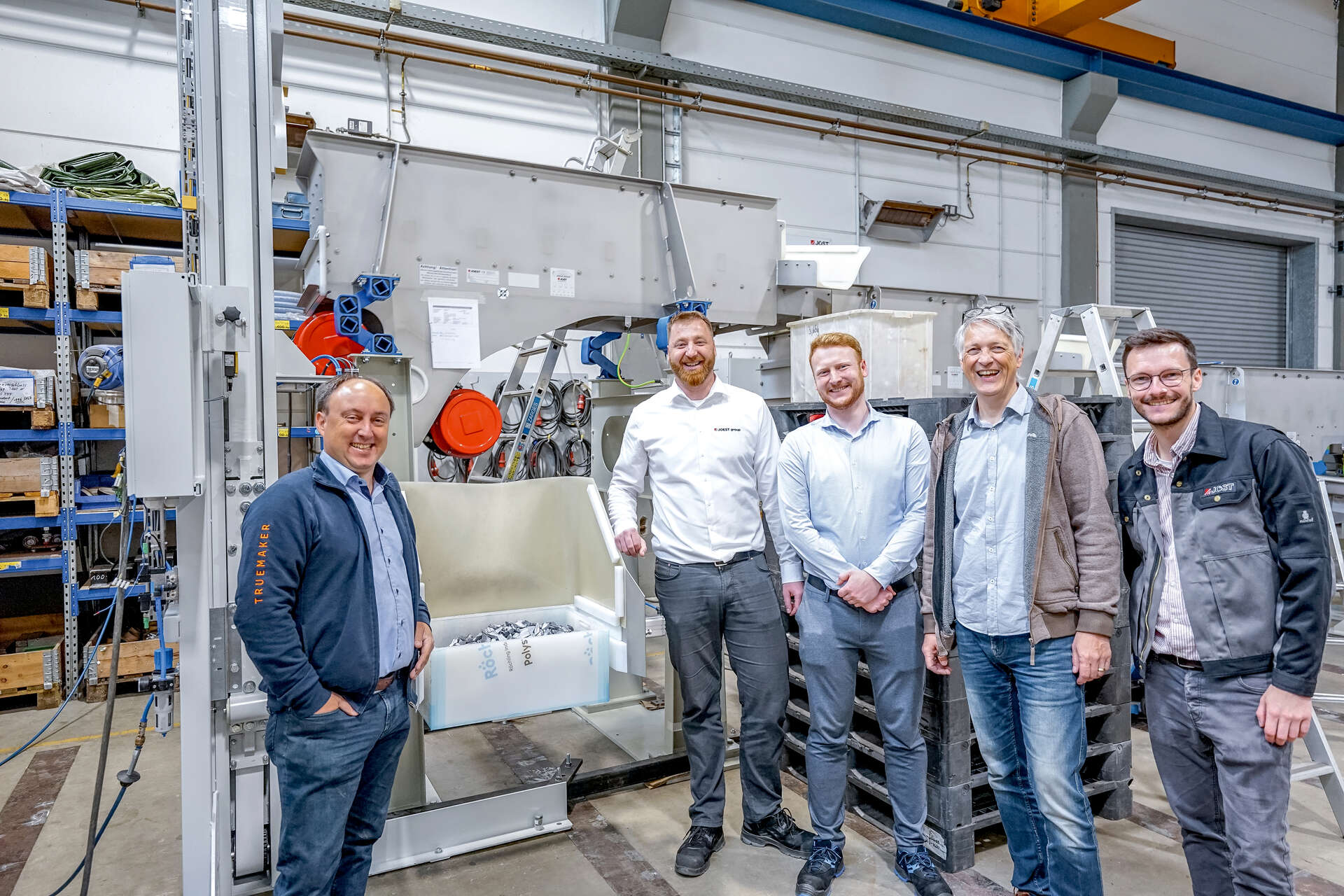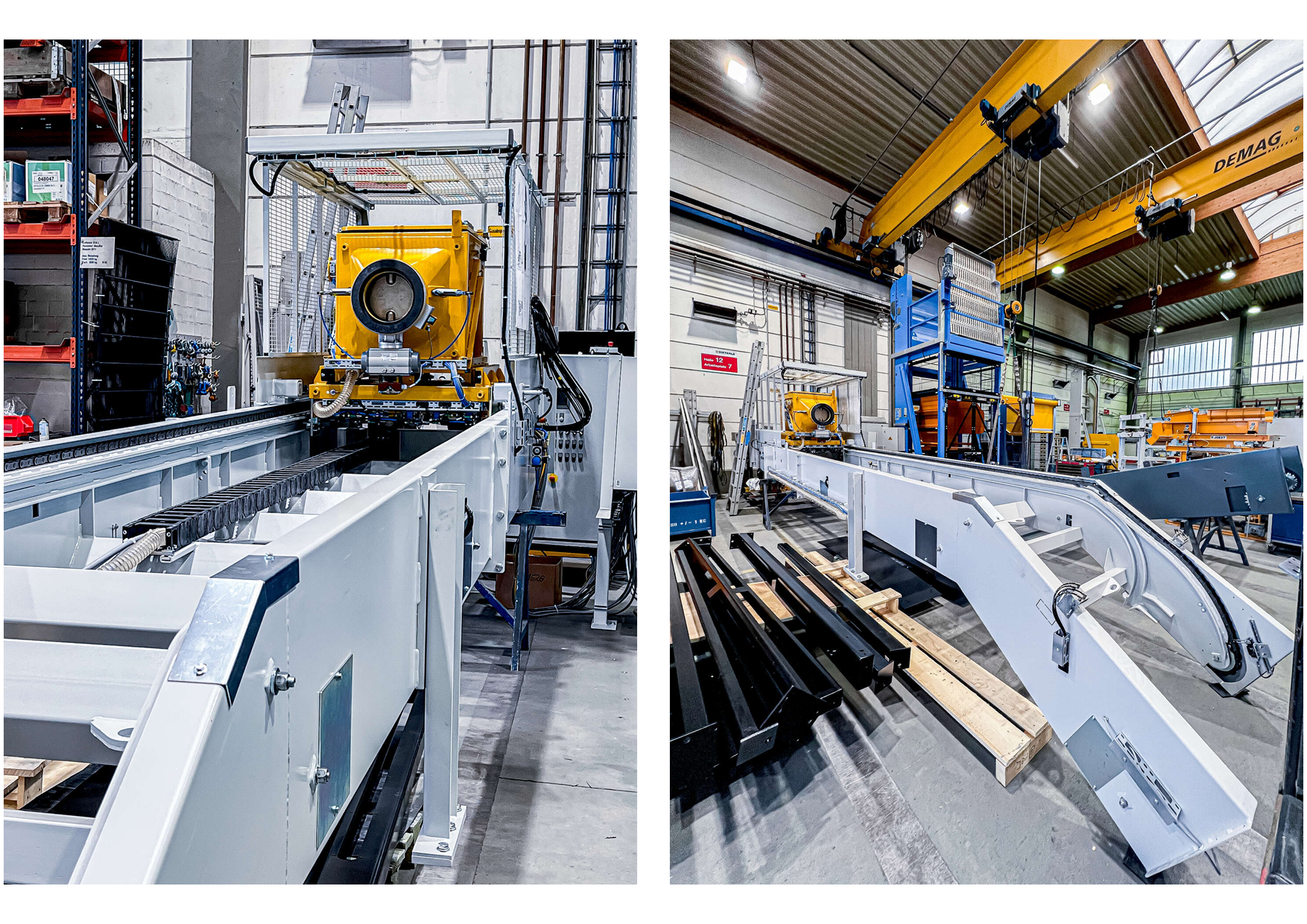Chemical & FOOD
Installation of the first JOEST drying plant for diatomite in Australia
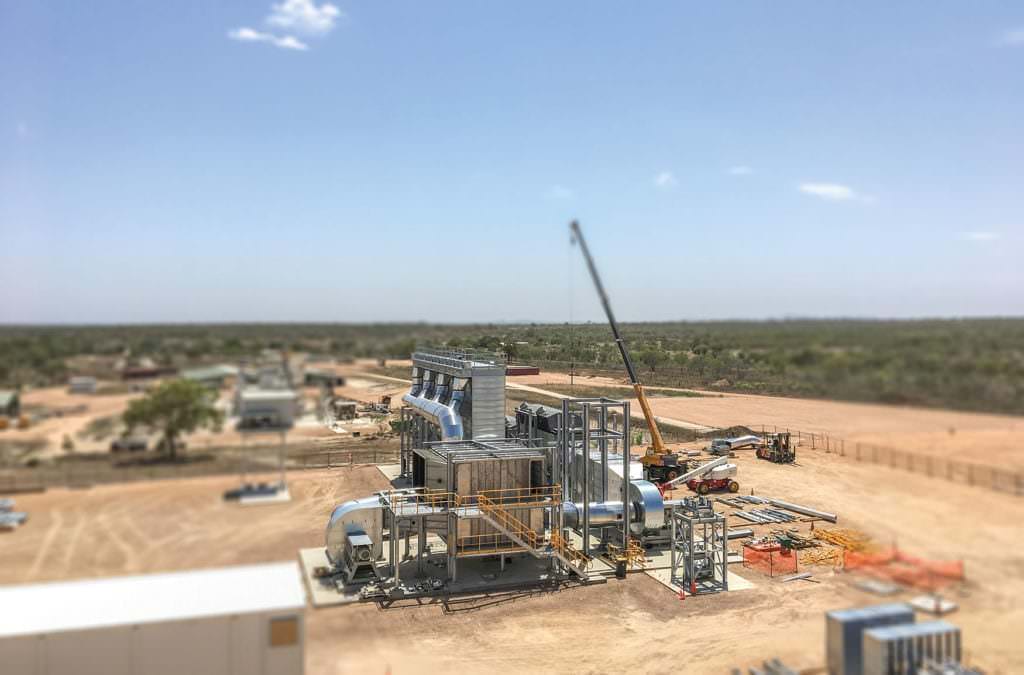
Australia JOEST assists in the assembly of a complete drying plant with classification for an Australian agricultural company.
In 2017, JOEST sold a drying plant with downstream classification to an Australian agricultural company, which owns a storage facility for diatomite in excess of 2 million cubic meters and processes it for use in agriculture. Diatomite consists of shells of fossil diatoms with a very porous structure. The main component of the shells is amorphous silicon dioxide SiO2.
For use, the product must be brought into a form suitable for agriculture. This requires, among others, a granulation with addition of water followed by drying in a JOEST drying plant. The granules are dried to the water content required depending on the type of product in two vibrating fluid bed dryers connected in series with a total flow area of 44 m². The system supplied by JOEST included, in addition to the vibrating fluid bed dryers, the complete ventilation equipment with fans, hot air generators, exhaust air purification and heat recovery. The electrical equipment (MCC and PLC part) is also included in the scope of delivery. A JOEST linear vibrating screen (double-decker) for the screening of coarse and fine material before packing/loading completes the scope of delivery.
The installation of the scope of delivery was assisted by JOEST technical staff. A particular challenge was posed by the local electrical standards which, among other, require a special design of the control cabinets. Special attention had to be paid to the climatic conditions at the installation site.
The commissioning of the entire plant is expected in the first quarter of 2019 and production will start in the second quarter of 2019. The design of this drying plant showed once again that JOEST does not shy away from any challenges to reach a successful end result.
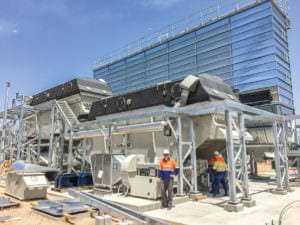
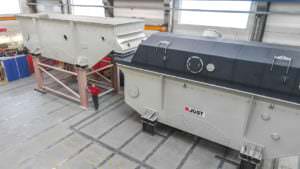
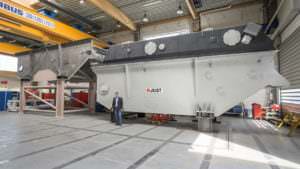
Weitere Beiträge
As part of the JOEST group, MOGENSEN has been a trusted provider of high-performance screening and sorting technologies for many years. The new website now showcases this expertise more clearly and with a modern touch.
On International Women’s Day, we celebrated the great women in our company who have made a significant contribution every day with their commitment, expertise and passion. Their efforts have been a driving force behind our success and an inspiration to us all.
JOEST South Africa was commissioned to manufacture and supply replacement vibrating feeders for a critical power generation facility. The new units are designed to replace equipment that had been in operation for over 20 years, ensuring the continued reliability and efficiency of the plant.
MOGENSEN joins China’s food security project as an official supplier, supporting the nation’s plans to strengthen domestic grain production capabilities. The appointment by COFCO, China’s largest state-owned agricultural company, includes the deployment of multiple precision screening systems for processing rice, wheat and soybeans, among other grains. This long-term initiative is in line with China’s new food security law, which went into effect on June 1, 2024.





